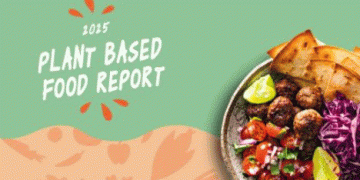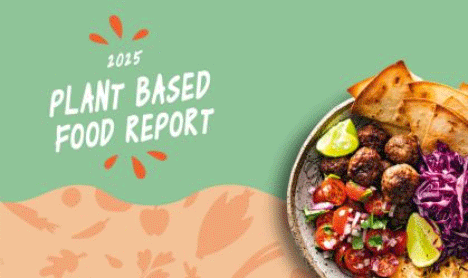The shift towards plant-based alternatives has become a significant trend in global food consumption, with environmental and health concerns driving the demand. According to the latest Plant-Based Food Report by Coop, plant-based products have solidified their place in everyday diets, and Coop has responded to this change by offering over 2,000 vegan items, including more than 100 meat and fish substitutes. This increase in offerings also includes numerous dairy, yogurt, and cheese alternatives, available under Coop’s private labels like Betty Bossi Plant Kitchen and Karma.
The growing popularity of plant-based foods has led to a consistent rise in demand. The report highlights that 57% of Switzerland’s population is now classified as flexitarians, individuals who consciously reduce their consumption of animal products such as meat, fish, milk, cheese, and eggs, choosing plant-based alternatives several times a week. This is in line with the findings of the 2025 report, which surveyed over 2,200 participants from German-speaking Switzerland, Ticino, and the Romandy region. Although the proportion of flexitarians has remained stable, the trend toward more sustainable eating habits is undeniable.
In addition, 30% of Swiss people have become “substitarians,” meaning they replace animal-based products with plant-based alternatives multiple times a month. This shift reflects a broader trend of long-term dietary changes, with 54% of the population consuming vegan alternatives for at least four years. The survey reveals a strong belief that plant-based consumption will continue to increase, with nearly two-thirds of respondents expecting to consume more or the same amount of plant-based alternatives in the next five years.
The rise of plant-based eating is also attributed to increasing environmental and health awareness. More than ever, consumers are recognizing the environmental impact of animal agriculture, which has led to more people reducing their consumption of animal-based products. Additionally, individuals aged 45 and above are reducing animal product consumption for health reasons, further fueling the growth of plant-based alternatives.
Coop’s commitment to sustainability is evident in the continued expansion of its plant-based range. One of the key drivers of this growth is the increasing popularity of dairy alternatives. Over 17% of all milk sold at Coop is now plant-based, with oat-based milk emerging as the most popular choice. In response, Coop has introduced new products like the Naturaplan Bio-Oat Drink in reusable glass bottles, a move that aligns with the growing demand for sustainable packaging.
Among the top plant-based alternatives, vegan meat substitutes are leading the market. In Switzerland, the top three most popular meat alternatives based on sales are vegan sliced meat, vegan schnitzels, and charcuterie substitutes. This indicates that consumers are increasingly turning to plant-based options not only for health and environmental reasons but also for their versatility in cooking and meal preparation.
The increasing demand for plant-based alternatives is reshaping the food industry, and Coop’s expansion of its vegan product line reflects the changing preferences of consumers. With environmental and health benefits at the forefront, plant-based foods are becoming a permanent fixture in people’s diets. As flexitarian and substitarian diets grow in popularity, the future of food looks greener, with plant-based alternatives taking center stage in global eating habits.































